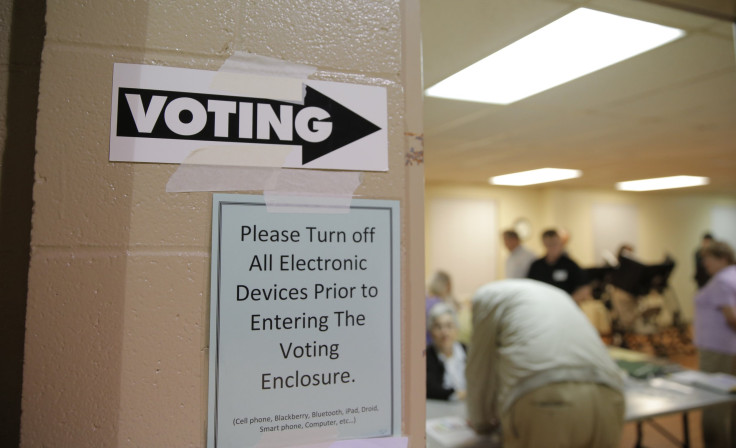What Is Vote Flipping? Donald Trump's Latest Rigged Election Claim In Texas, North Carolina And Nevada

Donald Trump has made no secret of his belief that if he loses the election, it will be because the system is rigged. Voter fraud commonly pops up in his statements, and he has railed against dead people voting.
His latest claim of an unfair election? Vote flipping.
“A lot of call-ins about vote flipping at the voting booths in Texas. People are not happy. BIG lines. What is going on?” Trump tweeted Thursday.
Reports have surfaced from North Carolina, Texas, and Nevada of early voters pressing one candidate's name and having another pop up in its place, according to National Public Radio. A voter in Tarrant County, Texas, took to Facebook to voice her concerns about votes getting flipped.
“I had a family member that voted this morning and she voted straight Republican,” Shandy Clark posted. “She checked before she submitted and the vote had changed to Clinton.”
Instances of votes cast for Clinton changing to Trump have also been reported, according to North Carolina’s WBTV.
“The machine is not working and people are voting on it,” Rev. Kojo Nantambu, Director of Religious Emphasis Advocacy for North Carolina’s NAACP told WBTV. “That’s just as bad as suppressing the vote because the vote is not counting properly.”
Derek Bowens, elections director for New Hanover County in North Carolina told WBTV that any problematic machines are removed from polling places until the issues are fixed.
Voting technology varies from state to state, with most using a combination of paper and electronic ballots. Five states, including Delaware, Georgia, Louisiana, New Jersey, and South Carolina don’t use any paper in their voting.
The best way to ensure a flipped vote isn’t counted incorrectly is to double check before submitting it. In the reported incidents, the votes were able to be fixed before finalizing, though there’s no way to tell how many went unnoticed and submitted.
Mass voter fraud in U.S. elections has mostly been debunked as a myth. Richard L. Hasen, a law and political science professor at the University of California Irvine School of Law, is the author of "The Voting Wars" and mainly contends that voter fraud is rare and mostly isn't present in presidential elections.
"It's been in small local elections, never on a large enough scale, I think, to affect a presidential election and not the kind of fraud that Donald Trump is talking about to affect the outcome," Hasen told NPR's "Fresh Air."
© Copyright IBTimes 2025. All rights reserved.






















